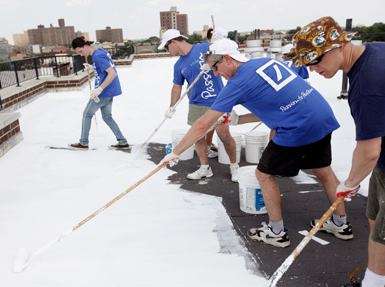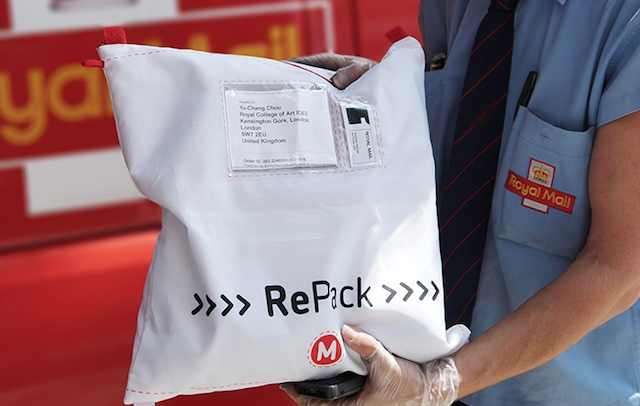On the hottest day of the summer last year in New York City, a white roof was measured to be 42 degrees (F) cooler than the traditional black roof it was being compared to by NASA scientists studying the city's unprecedented effort to brighten rooftops and cool down the city.
A new study of how different white roofing materials performed "in the field" in New York City over multiple years found that even the least expensive white roof coating reduced peak rooftop temperatures in summer by an average of 43 degrees Fahrenheit. If white roofs were implemented on a wide scale, as the city plans to do, this reduction could cut into the "urban heat island" effect that pumps up nighttime temperatures in the city by as much as 5 to 7 degrees Fahrenheit in the summer, said the study's lead scientist, Stuart Gaffin of Columbia University.
The sunlight-absorbing surfaces of asphalt-covered New York City roofs reached 170 degrees Fahrenheit on July 22, 2011, a day that set a city record for electricity usage during the peak of a heat wave. But in the largest discrepancy of that day, a white roofing material was measured at about 42 degrees cooler. The white roof being tested was a low-cost covering promoted as part of Mayor Michael Bloomberg's effort to reduce the city's greenhouse gas emissions 30 percent by 2030.
"Cities have been progressively darkening the landscape for hundreds of years. This is the first effort in New York to reverse that. It's an ambitious effort with real potential to lower city temperatures and energy bills," said Gaffin.
"It's the lowest hanging fruit. It's very cheap to do; it's a retro-fit. You don't need a skilled labor force. And you don't have to wait for a roof to be retired."
(READ the full story from NASA)










Be the first to comment